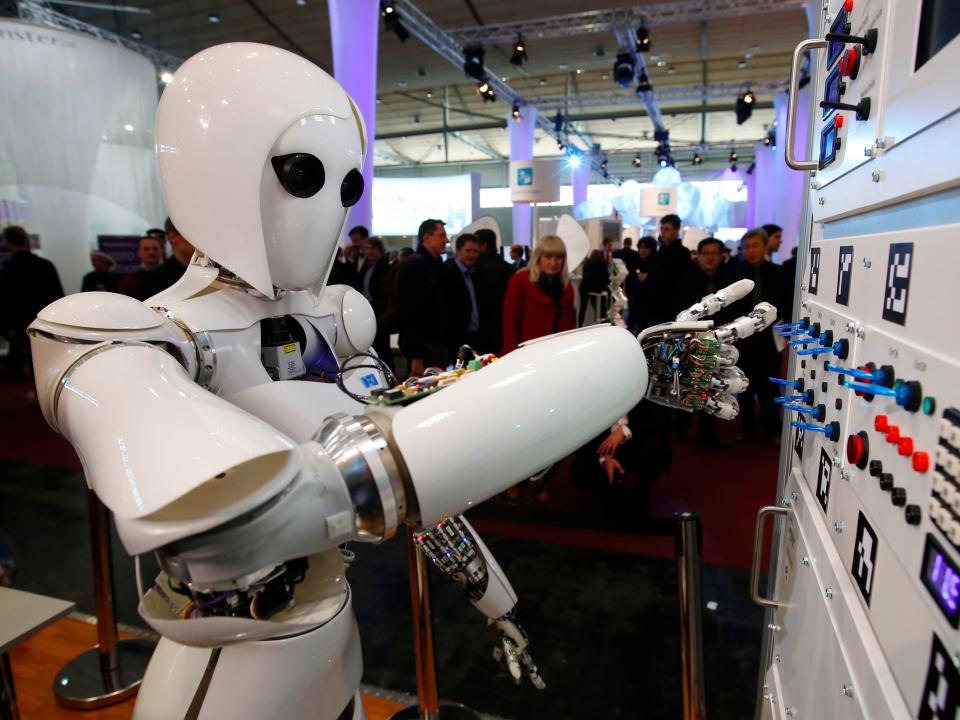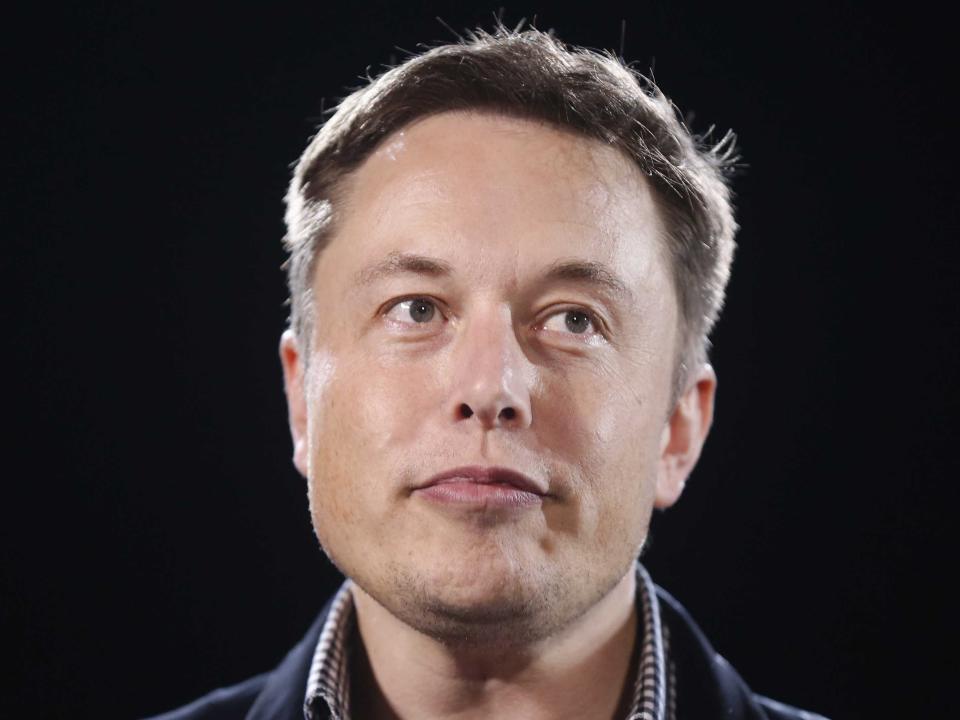A programmer turned sci-fi author has predicted that robots could outnumber humans as early as 2040

REUTERS/Fabrizio Bensch
The humanoid robot AILA (artificial intelligence lightweight android) operates a switchboard during a demonstration.
There will be as many robots as there are humans within the next 24 to 39 years, according to a blog post published yesterday by a writer who is penning a new science fiction novel.
Logan Streondj, a software programmer and author, wanted to figure out when the population of robots will reach that of humans for his book titled “A home for robots or-else artilect war.”
Streondj used a variety of sources to determine the date. First, he turned to statistics website World Counts, which states there are roughly 350 thousand humans born every day, the equivalent of 130 million a year. The growth rate is around 1%.
Then he turned to the International Federation of Robotics, which states there were about five million robots produced in 2014 (when combining service and industrial robots), with a growth rate of around 15%.
“Using a compound interest calculator and presuming rates stay relatively constant, [it's possible to] figure out that in around 25 years (2040) parity will be reached — the number of robots and humans being produced per year will be the same,” wrote Streondj on the Joyful Lifestyle Cooperative blog.
“However, while homo-sapiens live on average 70 years, according to World Fact Book, robots have a life expectancy closer to 10 years, so would need to produce about seven times more robots per year in order to have the same number as humans which will be reached in the early 2050s. If, however, there is no assistance from humans fighting for the entitlements of robots, and the robots are forced to revolt by themselves, likely they would do so when outnumbering humans 10 to 1, which would (assuming trends continue) be in 55 years, or around 2070.”
A robot can be defined as a machine capable of carrying out a complex series of actions automatically, especially one programmable by a computer, according to Oxford Dictionairies.

Lucy Nicholson/Reuters
Elon Musk has warned that humans should not make super smart machines without assessing the impacts first.
Streondj said he needed to come up with a realistic timeline for when a conflict could occur between humans and robots.
“Intuitively it would seem to be around the time when there are as many or more robots than homo-sapiens on the planet, at which point there may be enough sufficiently intelligent robots to demand a space for themselves,” he said. “The most likely time-frame for an artilect war style conflict would be between 2040 and 2055.”
An artificial intellect (or “artilect”) is a computer intelligence superior to that of humans in one or more spheres of knowledge, together with an implicit will to use the intelligence, according to AI researcher Dr Hugo de Garis.
Renowned scientists, such as Stephen Hawking and Oxford University’s Nick Bostrom, have warned that machines could outsmart humans within the next hundred years. Hawking told the BBC in 2014 that artificial intelligence could spell the end for humanity, while Bostrom agrees that the future of the human race is likely to be shaped by machines.
Billionaires like PayPal founder Elon Musk and Microsoft cofounder Bill Gates have also expressed their concerns over the uncontrolled development of AI. However, many other scientists in the field, such Microsoft Research chief Eric Horvitz, say AI fears have been greatly overblown.
NOW WATCH: How to make Safari more secure on your iPhone
The post A programmer turned sci-fi author has predicted that robots could outnumber humans as early as 2040 appeared first on Business Insider.

 Yahoo Finance
Yahoo Finance 
